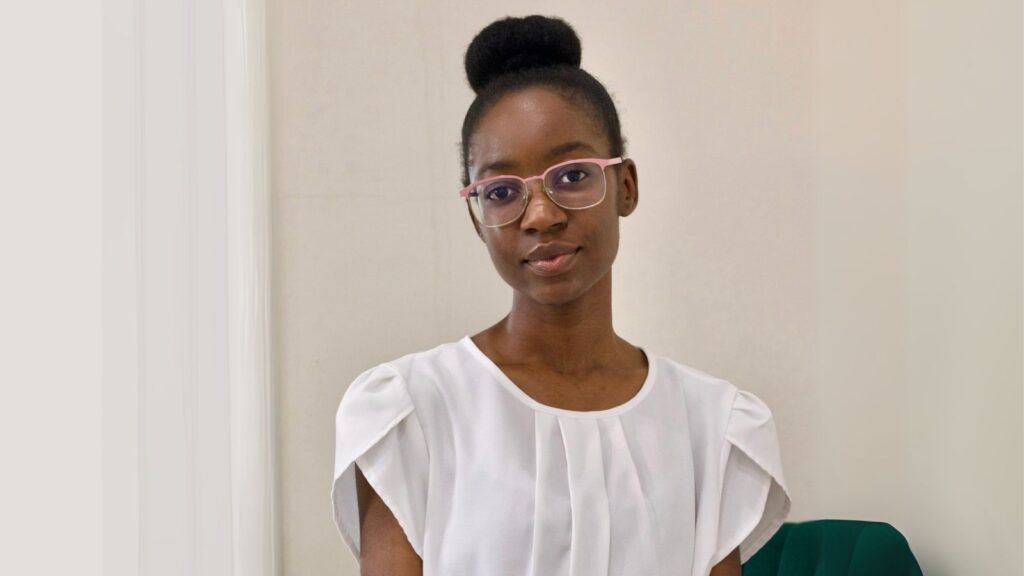ND-MSCR student encourages a return to ‘wholeness’ through evidence-based health.

With the National University of Natural Medicine (NUNM) gearing up to host Research Week from May 12-16, we’re shining a spotlight on our student researchers.
Rudo Duri, a dual-degree student in the Doctor of Naturopathic Medicine and Master of Science in Clinical Research programs at the National University of Natural Medicine (NUNM), has a special interest in botanical medicine and working with underserved populations.
Her research spans a range of topics across women’s health, cognition, and mental health, with the ultimate goal to deliver a sense of ‘wholeness’ to individuals seeking to improve their overall well-being.
Rudo Duri ’27
Program: Doctor of Naturopathic Medicine (ND); Master of Science in Clinical Research (MSCR)
Hometown: Dallas, Texas
What are your research interests?
My research interests cover a wide range of topics within integrative and preventative health, with a strong focus on women’s health, cognition, and mental health.
I’m especially passionate about identifying the root causes of illness and exploring how evidence-based approaches can promote long-term wellness. I’m drawn to working with underserved populations and deeply believe in the healing potential of botanicals to help bring people back into a state of wholeness—nothing missing, nothing broken.
What research are you working on now?
Right now, I’m involved in several research projects that reflect my interest in both clinical and basic science. At the Oregon Health Science University (OHSU), I’m working under the mentorship of Drs. Amala Soumyanath and Doris Kretzschmar at the Botanical Dietary Supplements Research Center (BENFRA) to study how Withania somnifera (ashwagandha) leaf extracts impact age-related changes in sleep and locomotion using Drosophila melanogaster (or the common fruit fly) as a model. This work fits within BENFRA’s broader goal of exploring botanicals that support neurological resilience in aging.
In addition, I’m working on several evidence synthesis projects through Neurotrauma Evidence Synthesis Training (NEST), a traumatic brain injury (TBI) evidence-synthesis training program, under the mentorship of Dr. Joshua Goldenberg and Dr. Monique Aucoin.
These include: an umbrella review on the connection between cognition and the gut microbiome; a scoping review on the mental health impacts of Allium sativum (garlic); and a systematic review exploring convergence insufficiency following TBI. (1-3)
Why is NUNM a good place to do research?
When I was choosing a school, I was looking for a place that was already well-established in research—somewhere that offered NIH-funded projects, strong mentorship, and meaningful connections with other institutions. I also wanted to be trained not just as a future physician, but as a clinical scientist.
NUNM and the Helfgott Research Institute offers all of that. Its commitment to evidence-based medicine and its collaborative research culture make it an ideal place to bridge the gap between clinical care and academic research.
Research Sources:
Joshua Goldenberg, Richard D. Batson, Traver Wright, Ryan Wexler, Kristen McGovern, Navneet Venugopal, Weston Ward, Kathleen Randolph, Randall Urban, Richard Pyles, Melinda Sheffield-Moore. Cognition, brain fog, and the microbiome: an overview of reviews. PROSPERO 2023 CRD42023412903. (1)
Eedy, V., Aucoin, M., Al Osh, H., Duri, R., Goldenberg, J., & Lachance, L. (2024, October 15). Allium sativum and Mental Health: A Scoping Review. (2)
Joshua Goldenberg, Richard Batson “Convergence Insufficiency After Traumatic Brain Injury: A Systematic Review.” OSF, 10 Aug. 2023. Web. (3)